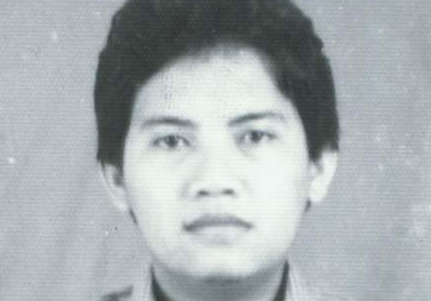 ICJ and other human rights groups have written to the Indonesian President to resolve the enforced disappearance of 13 political activists in 1997-98.
ICJ and other human rights groups have written to the Indonesian President to resolve the enforced disappearance of 13 political activists in 1997-98.
Your Excellency,
In full support of the campaign of human rights defenders in Indonesia around International Day of the Victims of Enforced Disappearances, we write to urge you to ensure justice for the 13 pro-democracy activists who were forcibly disappeared in 1997 and 1998: Sonny, Yani Afri, Ismail, Abdun Nasser, Dedi Hamdun, Noval Alkatiri, Wiji Thukul, Suyat, Herman Hendrawan, Bimo Petrus Anugerah, Ucok Munandar Siahaan, Yadin Muhidin and Hendra Hambali. More than a decade has passed since their disappearance and their families await the truth about the fate of their loved ones. They also wait for reparation for the anguish they have had to suffer through the years of not knowing their loved ones’ whereabouts.
The Indonesian Commission on Human Rights (Komnas HAM) already submitted in 2006 its Final Report on the Inquiry on Enforced Disappearances, revealing that at least 13 pro-democracy activists remain missing from the numerous abductions that occurred in 1997 and 1998. Komnas HAM recommended establishing an ad hoc Human Rights Court and investigating those suspected of criminal responsibility for these abductions. In September 2009, the Indonesian Parliament (DPR) issued recommendations echoing those of Komnas HAM, particularly on the establishment of an ad hoc Human Rights Court and providing rehabilitation and compensation to the families of the victims.
Under Article 43 of Indonesia’s Law 26/2000, cases of gross violations of human rights that occurred prior to 2000 shall be heard by an ad hoc Human Rights Court. The law further provides that the President shall establish the court upon recommendation of the DPR. As noted above, the DPR has already made such a recommendation to the President. We believe, therefore, that it is imperative for your Office to now establish the ad hoc Human Rights Court to hear the cases of the 13 disappeared activists and to pursue investigations and, if there is sufficient admissible evidence, prosecutions against those suspected of criminal responsibility. Such steps should fall within the framework of a wider investigation into all past cases of enforced disappearances committed by Indonesian security forces.
An ad hoc Human Rights Court would be an important measure for the Government to fulfill the rights to justice, truth and reparation of the families of those subjected to enforced disappearance. The rights to justice, truth and reparation are expressly recognized under international law. The 2005 Set of Principles for the protection and promotion of human rights through action to combat impunity (E/CN.4/2005/102/ Add.1) (hereinafter Set of Principles) provides that States should “ensure the inalienable right to know the truth about violations.” Victims and their families have the “imprescriptible right” to know the truth about the circumstances in which the violations took place. In the case of death or disappearance, victims’ families have the right to know the truth about the fate of their loved ones. The Set of Principles also asserts that violations of human rights give rise to the right to reparation on the part of the victim or the victim’s beneficiaries. This necessarily implies that the State has a duty to make reparation to victims of human rights violations and their families.
During the Universal Periodic Review of Indonesia in 2012, the international community welcomed the Government of Indonesia’s reaffirmation of its commitment to combat impunity in the country. This commitment is significant also at the regional level, given Indonesia’s integral role in the establishment of an ASEAN human rights mechanism. Therefore, fulfilling the rights to justice, truth and to reparation of victims of enforced disappearances will not only have enormous positive impact on Indonesia, but also on the rest of Southeast Asia.
We therefore urge your office to act immediately and effectively to resolves all cases of enforced disappearance in Indonesia and to combat impunity for these crimes. Such measures should include:
- Instruct the Attorney General to investigate the enforced disappearance of the 13 political activists in 1997 and 98 and, where there is sufficient admissible evidence, bring those responsible to justice in independent trials which meet international standards of fairness and which do not impose the death penalty;
- Establish an ad hoc Human Rights Court as recommended by Komnas HAM and the Indonesian Parliament (DPR);
- Provide full and effective reparations (including restitution, compensation, rehabilitation, satisfaction and guarantees of non-repetition) to victims of enforced disappearance and/or their families;
- Establish an independent, impartial and effective investigation into the fate and whereabouts of the 13 disappeared political activists, within the framework of a wider investigation into enforced disappearances in Indonesia;
- Ratify promptly the International Convention for the Protection of All Persons from Enforced Disappearance and recognize the competence of the Committee on Enforced Disappearances to receive and consider communications from or on behalf of victims or from other states parties; and
- Invite the UN Working Group on Enforced or Involuntary Disappearance (WGEID) to visit Indonesia, pursuant to their request pending since 2006, and ensure that the visit is conducted at the earliest opportunity and that the WGEID enjoys the full co-operation of and access to relevant authorities.
We look forward to the Government of Indonesia taking vigorous strides towards combating impunity in the country and setting an important example on human rights protection and promotion in the region.
Sincerely yours,
Sam Zarifi, Regional Director for Asia and the Pacific, International Commission of Jurists
Pollyanna Truscott, Deputy Director Asia-Pacific Programme, Amnesty International
Souhayr Belhassen, President, International Federation for Human Rights (FIDH)
Yap Swee Seng, Executive Director, Asian Forum for Human Rights and Development (FORUM-ASIA)
Photo: Abdun Nasher, one of the 13 activists.

